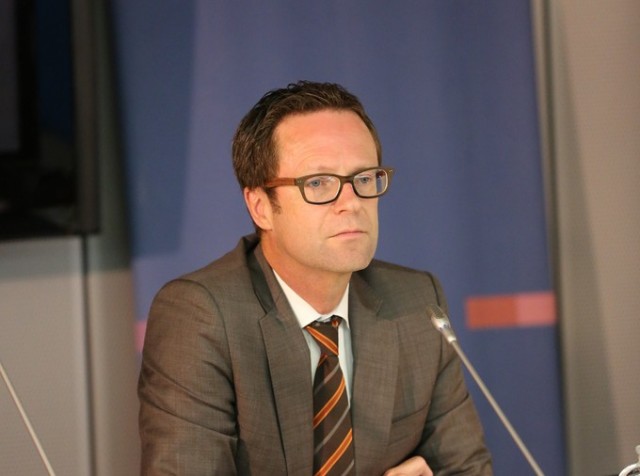The following is a guest-post on the future of victims and victim participation at the International Criminal Court. It was written by Stephen Smith Cody (Director of the Atrocity Response Program at the University of California, Berkeley School of Law), Susana SáCouto (Director of the War Crimes Research Office (WCRO)) and Chris Tenove (a doctoral candidate at the University of British Columbia).
When the Assembly of States Parties convenes this week, members will select judges, finalize a budget, and debate new rules and regulations. Another topic sure to arise is the major reform of the Registry of the International Criminal Court (ICC). Such actions don’t make headlines, but they have serious implications for how the ICC operates and how it relates to one of its key constituencies, victims of crimes. We have several concerns about how proposed reforms of the Registry might impact victims’ opportunities to engage with and be heard by the ICC.
The Rome Statute gives victims the right to participate in judicial proceedings that affect their personal interests, so long as this does not violate fair trial processes or the rights of the accused. Victim participation, along with victims’ right to reparations and opportunities to receive assistance and rehabilitation from the Trust Fund for Victims (TFV), can enable the ICC to engage victims and promote justice for them beyond the courtrooms of The Hague.
Victims’ opportunities to participate have of course been shaped by judicial decisions. (For several reports and comments on these developments, see the end of this post.) They are also affected by the Registry’s policies, and so the major institutional reform of the Registry – known as the “ReVision Project” – may have significant implications for victim participation. (Registrar Herman von Hebel has discussed this major restructuring, and FIDH has issued a thoughtful letter in response.) While we can find no public document outlining the ReVision proposals, Registry officials have provided an overview to some civil society actors. Among other proposed reforms, the overview suggests that victim participation will be streamlined by merging two current offices (the Victims Participation and Reparations Section, or VPRS, and the Office of Public Counsel for Victims, or OPCV) into a single Victims Office, and legal representation for victims would come entirely or partly from within this office.
We wholeheartedly support efforts to make victim participation more efficient and effective. However, we are concerned that this reform may not take sufficient account of victims’ actual engagement with their representatives and Court officials or their own views on legal participation. As researchers working on different projects related to victim participation, we have examined these issues from empirical as well as doctrinal perspectives. Drawing on in-depth interviews with Court staff, victims’ legal representatives, and hundreds of victims in four ICC situation countries, we have several observations that might inform debates around victim engagement in general, and legal participation in particular.
Victim participation requires ongoing dialogue between the Court and victims.
Recognition of victims’ experiences and suffering requires contact and conversations with victims. This dialogue should enable victims to learn about the ICC, their right to participate, and details of judicial processes that concern them. It should also enable victims, when appropriate, to put forward their opinions, concerns, and interests.
We agree with the ReVision proposal to improve the coherence of the Court’s communication with victims, but we would emphasize that this engagement must be ongoing. Judicial processes and victims’ situations evolve, and so must opportunities for victims to become informed and to express their views. Victim representatives must be able to provide victims with up-to-date information, solicit victims’ views, and advance them through appropriate judicial and non-judicial channels.
One common complaint that we have heard from victims is that they do not know what the Court is doing on matters that concern them, such as the status of their application to participate, the timing of trials, or the opportunity to receive reparations. “The most important thing is that we want somebody from the Court to come here so that we can interact with them,” said one Ugandan victim (interviewed by Cody as part of a multi-country study of victim interactions with the ICC).
It is important that ICC staff and representatives create systems to disseminate information on judicial proceedings and other court-related activities on a regular basis. Doing so may require the Court to provide communication devices, such as radios or mobile phones, to representatives in affected communities and develop protocols for responding to victims’ concerns in a timely manner.
Victims’ representatives should be aware of potential insecurities, including the possibility for retaliation against victim participants. Representatives should also be able to help victims get attention from the Victim Witness Unit (VWU) should they be facing serious security and health threats, particularly if these arise from being victim participants.
In addition, representatives should be aware of the material needs of victims, and should help victims understand what assistance the Court can and cannot provide. In most cases, ICC staff who interact with victims should have a high level of cultural knowledge, training in working with survivors of violence, and experience working with vulnerable populations in the region. They should be able to speak of the work and mandate of the TFV, as well as the Court’s reparations process, while being careful not to unduly inflate victims’ expectations about reparations and assistance.
Victim participation requires independent representation.
The ICC should establish processes to ensure the effective coordination of victim-related services across all sectors of the ICC, and, where appropriate, combine efforts to utilize common systems and mediate costs and any potential risks to victims. We support some of the ReVision Project’s recommendations to achieve these ends.
However, the coordination of victim-related services and integration of court outreach and support must not compromise the independence of victims’ legal counsel, and we are concerned that eliminating external legal representatives altogether might do just that. It is important for victims’ representatives to act on behalf of victims, and thus to act and be seen to be acting independently of other constituencies or institutional imperatives. The Court must, therefore, preserve the autonomy of victims’ representatives’ vis-à-vis other sections of the Court in order to insulate representatives as much as possible from institutional pressures or tensions at the Court.
Victims’ representatives should, for instance, be able to pursue whatever actions they deem are in the interest of their clients. This not only includes assisting them to intervene in judicial processes where appropriate, but also helping them to engage with other actors at the Court and beyond. For instance, legal representatives of Kenya victims have made submissions to the Trust Fund for Victims, to members of the UN Security Council, and to donor agencies. It is not necessary for all victims’ representatives to advocate for victims before such bodies, but it should be up to their discretion to do so.
Legal representation provided exclusively by in-house counsel could threaten lawyers’ abilities to act as independent advocates for victims in other ways. If a single administrator or ICC unit manages the activities of multiple common legal representatives whose clients have opposing interests, for instance, it might be difficult to avoid conflicts of interest. Furthermore, if services are integrated into a single office, there may be no opportunity for victims to communicate concerns about their representation. If representatives conduct themselves poorly or lose the confidence of their clients, victims should have an opportunity to register their concerns with other actors (as they can currently do to the VPRS). Thus, some oversight or accountability mechanism is necessary to ensure that victims’ representation is handled ethically, competently, and in accord with the reasonable expectations of victims.

(The new permanent premises of the ICC, along with reforms to the Court Registry, will be discussed at the ASP Meeting this week. Photo: Schmidt/Hammer/Lassen Architects)
Victim participation requires knowledgeable representation.
Victim representatives must be able to navigate complex proceedings, requiring familiarity with the applicable jurisprudence and with ICC practice. Therefore, it is crucial that victim representatives continue to receive support from in-house counsel, and that at least one member of the legal team for victims have experience with international criminal trials. However, it is also necessary that legal representatives have the capacity to act as honest and accurate translators for victims’ communities and effectively interpret and convey the interests of victims’ communities – which may be diverse and even contradictory – to the Court.
The Court should measure and evaluate victims’ programs from the perspectives of victims.
A range of legal, cultural, historical, and psychosocial issues will necessarily complicate victims’ inclusion in Court proceedings. Yet incorporating victims into the international criminal justice process continues to be promoted as one of the Rome Statute’s great innovations. If victim participation is to be a meaningful part of the criminal justice process for victims, the Court should make efforts to assess victims’ programs from the perspectives of victims. More independent empirical research and internal evaluations are required to understand the impact of victim participation in different contexts and document the experiences of victims working with the Court over time. Thus, we recommend that the ICC continue to partner with independent scholars and research organizations to study victim programs and create feedback mechanisms that allow for the Court to respond to the dynamic and evolving interests of victims’ communities in situation countries.
We hope that these considerations will inform debates at this week’s ASP Meeting, and in the discussions that follow it.
————-
More information on victim participation and engagement:
Fédération Internationale des Ligues des Droits de l’Homme (FIDH) “Comments on the ICC Registrar’s ReVision proposals in relation to victims” (November 2014)
Impunity Watch, Victim Participation in Transitional Justice Mechanisms: Real Power or Empty Ritual? (April 2014)
Victims’ Rights Working Group, “Making victim participation effective and meaningful” (June 2014)
VRWG, “Victims’ Rights Before the International Criminal Court” (Winter-Spring 2014-2015)
War Crimes Research Office, Ensuring Effective and Efficient Representation of Victims at the International Criminal Court (December 2011)
WCRO, Obtaining Victim Status for Purposes of Participating in Proceedings at the International Criminal Court (December 2013)
Chris Tenove, “Victim Participation at the ICC – What’s the Deal?” (Justice in Conflict, November 2013)
”




Reblogged this on Refugee Archives @ UEL.
Pingback: Victims at the ICC: What is the Way Forward? | Chris Tenove
Pingback: What can victims tell us about justice? Thoughts from Judith Shklar | Chris Tenove